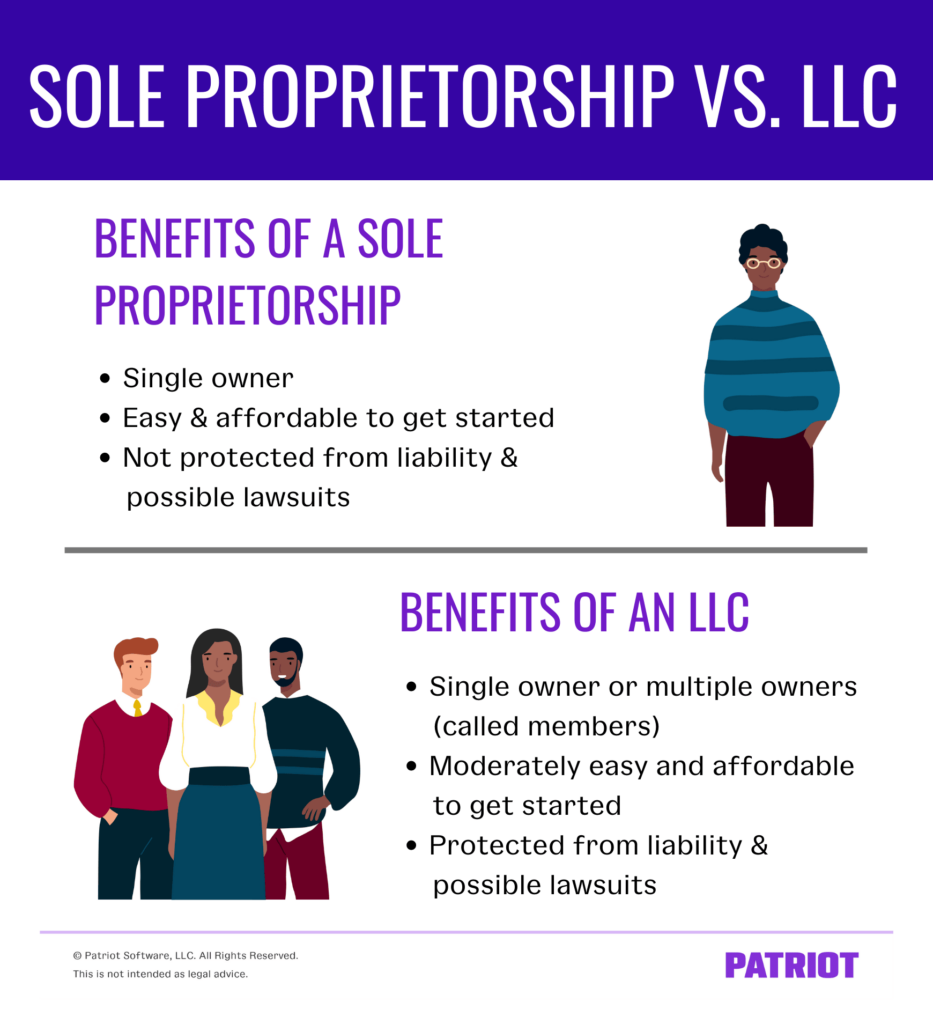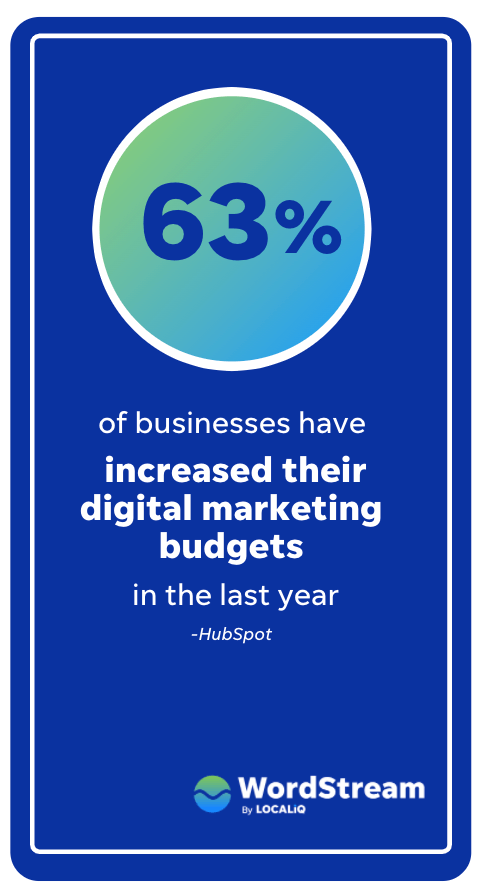The global tattoo industry has exploded in popularity over the last couple of decades. The tattoo services market earned $2.04 billion in 2023. If the industry continues to expand, the global value could reach $3.93 billion by 2030.

Opening a tattoo shop can be a rewarding small business venture for artistic entrepreneurs. It’s important to learn the basics of the industry, establish a unique brand identity, invest in high-quality tattoo equipment, and comply with state regulations before opening up shop.
This guide will walk you through how to open a tattoo shop. Topics include market research, competitive analysis, registering an EIN, forming an LLC, opening personal and business accounts for streamlined accounting, and more.
1. Conduct Tattoo Shop Market Research
Market research is essential to any tattoo parlor newcomer. It offers insight into your target market, local market saturation, and tattoo style and equipment trends.
Some details you’ll learn through tattoo artist market research include:
- The 18-29 age group is most likely to get their bodies “painted” or “inked”.
- According to research, the best locations to open a tattoo shop in the US are urban areas and college towns.
- Shops located near colleges and military bases can build a consistent clientele. Areas with higher incomes also generally support more tattoo shops per capita.
- The main costs involved with opening a tattoo shop are equipment, inventory, and real estate.
- Top-quality tattoo equipment like tattoo machines, ink, furniture, and lighting can cost $15,000 to $30,000 upfront.
- Ongoing inventory like gloves, disinfectant, razors, and tattoo aftercare averages around $2,000 per month.
- Leasing a retail space costs $3-5 per square foot on average.
- Top tattoo artists can make over $100,000 annually.
- The most profitable shops generate over $700,000 in revenue with at least 3 full-time artists.
- Exceptional customer service and marketing are key profit drivers.
The upfront costs to open a tattoo shop range from $40,000-$100,000 on average. But with the growing mainstream appeal of tattoos and the industry’s projected growth, a tattoo shop can offer strong long-term profit potential for savvy entrepreneurs.
2. Analyze the Competition
Competitive analysis will help you grow your tattoo business location. Competitor research tells you about local trends, price guidelines, marketing avenues, and more.
Some ways to get to know local competitors include:
- Search online review sites like Yelp and Google to find the highest-rated tattoo shops in your city. Check their total number of reviews and average ratings.
- Browse their websites and social media pages. Assess things like branding, posting frequency, engagement levels, and portfolio quality.
- Industry research recommends directly visiting competitors’ shops.
- Observe foot traffic numbers, cleanliness, pricing, and technologies used over several days.
- Talk to tattoo artists about local regulations, challenges, and opportunities if possible.
- Driving around the area to spot physical locations is key for visibility.
- Retail vacancies near colleges, military bases, high-income neighborhoods, and entertainment districts offer prime real estate.
- Online tools like Data Axle provide demographic data on competitors’ existing customer bases.
- Use this to find an underserved niche in the market.
Analyzing competitors from multiple angles provides invaluable insight into positioning your own tattoo shop. It pays dividends to invest time upfront to find gaps in the local market.
3. Costs to Start a Tattoo Shop Business
Starting a tattoo shop requires a significant upfront investment and careful tracking of ongoing expenses. Based on my decades of small business cost analysis expertise, here is a detailed overview of typical tattoo shop startup and operating costs.
Startup Costs
- Tattoo Equipment – High-quality tattoo machines, power supplies, ink, furniture, sterilization equipment, etc average $15,000 to $30,000. Starter sets for a solo artist may cost less.
- Lease Deposit – First/last month’s rent plus security deposit often equals $15,000 for a 2000 sq ft shop.
- Licensing & Permits – Health department permits, business licenses, and sales permits average $1,000 to $3,000 depending on location.
- Shop Buildout & Renovation – Plumbing, ventilation, lighting, flooring, and walls for a basic buildout average of $15,000 to $30,000.
- Starting Inventory – Inks, gloves, razors, disinfectants, aftercare products, office supplies, etc. average $3,000 to $5,000 upfront.
- Initial Marketing Costs – Logo design, basic website, signs, and business cards average $2,000 to $5,000 to promote a new shop.
Ongoing Costs
- Rent – $3 to $5 per square foot is standard depending on location. 2000 sq ft = $6,000 to $10,000 per month.
- Artist Commissions – Artists keep 50-60% commission on tattoos. Top artists can make over $100,000/year.
- Inventory – Needles, ink, gloves, cleaning supplies = $1500 to $2500 monthly
- Utilities – Electric, internet, trash collection = $1000 to $2000 per month on average.
These baseline startup and operating costs give aspiring shop owners an idea of the significant, ongoing investment required to establish and run a tattoo business over time. Careful financial planning and cash flow tracking are essential.
4. Form a Legal Business Entity
When establishing a tattoo shop, the legal structure you choose impacts taxes, liability, and business expansion options.

Here’s an overview of each entity type as it relates to tattoo shops:
Sole Proprietorship
A sole proprietorship is the easiest and cheapest option, but risky. You face unlimited liability for debts, lawsuits, or claims. All shop income and losses also pass onto your taxes.
Partnership
Partnerships allow for shared ownership but still expose owners to unlimited personal liability. Income passes through to partners’ tax returns. Adding artists as partners gets complicated for profit/loss splits. Disagreements often prompt breakups.
Corporation
A corporation offers personal liability protection but double taxation on profits. Corporations also require extensive record keeping, board meetings, and yearly filings and are expensive to create. Too bureaucratic for most small shops.
Limited Liability Company (LLC)
An LLC combines personal liability protection with pass-through taxation. LLCs require less paperwork than corporations and allow more flexibility for adding owners or tattoo artists. Most shops should form an LLC to shield personal assets.
5. Register Your Business For Taxes
An employer identification number (EIN) serves as a business’s tax ID number with the IRS. All LLCs and corporations must obtain their own EIN for tax and banking purposes. Here’s a quick guide to getting your tattoo shop’s EIN:
First, apply online via the IRS website. The online EIN assistant walks you through a series of questions about your LLC and its owners. It takes less than 10 minutes.
Unlike past mail applications, you get your EIN immediately upon completing the questions. The EIN allows you to open a bank account, apply for licenses, hire employees, and pay taxes under your business’s name rather than your identity.
Next, contact your state revenue agency to register for sales tax collection. Many states let you integrate this with your LLC registration. This allows you to collect sales tax on tattoo services as required by law in most states.
The EIN and sales tax registration help legitimize your tattoo shop with various agencies. Both processes are free of charge and easy to handle through official government portals. Taking these administrative steps early on sets your shop up for legal compliance.
6. Setup Your Accounting
Proper financial practices are critical for tattoo shops right from the start. Accurate bookkeeping and smart accounting decisions make tax compliance easier and avoid IRS headaches down the road.
Accounting Software
Invest in small business accounting software like QuickBooks to automatically track income, expenses, accounts receivable, and more in one place. Connect your bank and credit card accounts so transactions seamlessly sync. Using accounting software saves tons of time organizing finances instead of tracking Excel spreadsheets.
Hire an Accountant
Consider hiring an accountant for additional services like periodic bookkeeping checks, reconciliations, inventory accounting, and customized financial reporting. Expect to invest $200 per month for standard bookkeeping and reporting. Come tax season, accountants typically charge around $700 to prepare schedules, and deductions and file your tattoo shop’s yearly tax returns.
Open a Business Bank Account
Make sure to open a dedicated business bank account and credit card only used for shop purposes. Never co-mingle tattoo shop funds or expenses with your finances. This makes reconciling accounts much simpler at tax time.
Apply for a Business Credit Card
Apply for a small business credit card using your EIN and LLC documents which determine credit limits based on your shop instead of personal credit score. Use this card exclusively for all shop expenditures to simplify expense tracking.
7. Obtain Licenses and Permits
Opening a licensed and permitted tattoo shop is crucial for legal compliance and avoiding hefty penalties. Find federal license information through the U.S. Small Business Administration. The SBA also offers a local search tool for state and city requirements.
At a minimum, a tattoo shop requires a state health department permit stipulating sterilization procedures, equipment guidelines, and artist health screens. Fees range from $75 to $500 annually depending on your state. Health inspectors can impose fines or shut down unpermitted shops posing public health risks.
You’ll also need a general state business license to legally operate. Expect costs between $50 and $100 per year. Some cities and counties require additional local general business licenses too. These certify your tattoo shop complies with all codes and regulations.
Any tattoo shop with employees needs both a federal EIN and state tax ID number for payroll tax purposes. You must also carry workers’ compensation insurance per state statutes with minimum coverage levels. Otherwise, serious lawsuits can occur if employees get injured on the job. Never risk going without proper payroll licensing.
If selling retail products, check if you need a special sales licensing permit or certificate. For example, shops selling tattoo aftercare ointments may require a certificate to collect sales tax on over-the-counter medical items. You must display active sales permits on the premises.
8. Get Business Insurance
Business insurance is a critical protection for tattoo shops against unexpected catastrophes. Working in any industry where bodily fluids are involved includes heavy risks. Investing in top-tier business insurance should be a big part of a tattoo shop business plan. Here’s what coverage provides:
The right business insurance defends against client lawsuits, protects your rented space, replaces damaged equipment, and keeps income flowing after disasters. Policies shield your assets if sued for issues like tattoo infections. They also pay to rebuild after fires, floods, or theft.
Without adequate coverage, a major claim from a disgruntled customer could financially crush your shop. The same goes for rebuilding after a roof collapse or pipe burst damages your leased space.
You also risk personally covering massive medical bills if an artist gets a career-ending hand injury without workers’ compensation insurance. Or if a show causes food poisoning by an unsafe tattoo ink supplier.
Start by checking your shop lease to confirm if the landlord requires you to carry renters insurance or liability limits. Next, get quotes for specialized tattoo business policies from providers like CoverWallet that bundle property, liability, and other offerings.
Work with an insurance broker to review policy costs, exclusions, and coverage levels for assets, income, liability risks, and employees. Expect monthly premiums between $100 to $300 per month depending on location and coverage.
9. Create an Office Space
Operating a tattoo shop is primarily a retail-based business. However, having a dedicated office area still benefits daily administrative tasks and meetings. Here are some potential office setups and costs for a tattoo shop:
Home Office
A home office works well for solo shop owners to handle scheduling, invoices, and vendor paperwork. Dedicate a quiet, private room solely for the business. Expect to invest $2,000 to $3,000 outfitting an at-home workspace with a desk, file storage, computer, etc. Monthly costs are minimal beyond internet and utilities.
Coworking Office
For a shared creative workspace, a WeWork membership provides meeting rooms, printing, events, and community networking. Great for collaborating with guest artists or tattoo supply vendors. Average $300 per month for an individual pass with meeting room rental extras.
Retail Office
If your shop space allows, adding a back office lets you multitask on admin work while artists tattoo upfront. Even a 10’ x 10’ room houses desk space, calendars, artwork samples, and client files right on the premises. Build-out expenses cost around $3,000 to $5,000.
10. Source Your Equipment
Launching a tattoo shop requires significant upfront investment in top-notch artist equipment and sterilization tools. Here are some options for sourcing necessary supplies:
Buy New
New tattoo machines, ink, furniture, and cleaning equipment from specialty vendors like WorldWide Tattoo Supply cost $15,000 to $30,000 for a fully outfitted shop. High monthly costs but essential for health codes and quality artistry.
Buy Used
Search used marketplaces like Facebook Marketplace and Craigslist for deals on specific gear. Common tattoo items like ink caps, tattoo chairs, or lighting fixtures often resell at 50-75% discounts. Inspect carefully for wear and tear.
Rent
Rent equipment starter packs from companies like Inked Circus for $200 to $300 per month. This avoids huge upfront capital for those with smaller budgets. Lock in a 6-month rental to try out tools.
Lease
Leasing spreads payments over 3-5 years through specialty finance companies like Abunda. Although total spending is higher than buying outright, low monthly bills help cash flow early on.
11. Establish Your Brand Assets
Establishing a strong brand identity separates successful tattoo shops from the competition. Investing in professional branding assets promotes visibility, recognition, and trust with potential clients. Here are the essentials:
Design a Logo
For logo design inspiration, sites like Looka offer affordable templates incorporating fonts, symbols, and colors suited for the tattoo industry. Expect to invest $200 to $500 in hiring a graphic designer to finalize artwork matching your vision.
Get a Business Phone Number
Make sure customers can easily contact your artists by setting up a centralized business phone system with studio extensions. Cloud-based services like RingCentral provide toll-free numbers, voicemail, and analytics starting around $30 per month.
Business Cards
Professionally printed business cards establish credibility when networking or consulting with prospective clients. Sites like Vistaprint ship 500 basic cards for under $50. Distribute cards at local events or music venues to expand reach.
Get a Domain Name
Obtaining a domain name for your website is important in the modern business world. Your tattoo parlor web URL should represent your brand and separate you from other professionally trained tattoo artists in the area. Check out Namecheap for an affordable .com address.
Design a Website
Purchase a branded domain name and launch a tattoo shop website to showcase artist portfolios, styles, and booking functionality in one spot like Fiverr. User-friendly site builders like Wix make it easy for non-tech owners to launch informational sites on a modest budget.
12. Join Associations and Groups
Beyond building your clientele, connecting with the broader tattoo community fuels success for new shops. Networking fuels mentorship, referrals, and connections, as well as keeping you apprised of industry best practices.
Local Associations
Start by seeking out national and regional associations for tattoo shop owners and artists. The Alliance of Professional Tattooists is a great place to start. You can also check out the Tattoo Artists Association.
Local Meetups
Search sites like Meetup for local groups organizing tattoo conventions, artist meetups, or shop tours. These in-person events offer prime opportunities to get insider techniques from veterans, find guest collaborators, and meet supportive peers.
Facebook Groups
Industry-specific Facebook groups like Ask A Professional Tattoo Artist and the more regionally centered Houston Tattoo Artists connect thousands of artists. Ask questions, showcase your work, and get details on the latest tools.
13. How to Market a Tattoo Shop Business
Promoting a new tattoo shop requires creativity and persistence to drive customer awareness and trial appointments leading to recurring business. Leverage both digital and real-world marketing across various channels.

Referral Marketing
Referrals from enthusiastic existing clients remain the most valuable asset for neighborhood tattoo shops. Offer 10% off their next tattoo for any customer who brings a friend to book an appointment. Simple incentives nurture true evangelists.
Digital Marketing
Digital campaigns allow precise targeting to reach local demographics most likely to get tattooed. Consider:
- Google ads target browsing-related keywords like “custom tattoo” and location terms. Expect to invest $100 per month to attract high-intent visitors.
- Facebook/Instagram ads showcasing artist portfolios to engage those interested in tattoo art styles. Target by geography, age, and interest keywords.
- An artist vlog-style YouTube channel displaying the tattoo process establishes expertise.
- Writing a studio blog, Q+A posts, and portfolio stories boost SEO.
Traditional Marketing
Traditional options supplement digital efforts:
- Print flyers to music venues, colleges, and cafes frequented by younger crowds prone to express themselves through tattoos.
- Soft open events welcome existing networks to experience the new shop before the official launch.
- Simple reader board street signage outside the studio grabs the attention of foot and vehicle traffic.
- Radio ads on local alternative, rock, and hip-hop stations reach those inclined to appreciate body art.
In your business plan, test digital and traditional channels on a small scale to determine the strongest ROI over a 3-6 month pilot before committing big ad dollars long term.
14. Focus on the Customer
For a tattoo shop, exceptional customer service translates directly into referrals, reviews, and repeat business over the long run. Each client interaction represents a chance to create vocal brand advocates.

Schedule consultations to actively listen to style ideas and design needs before inking. Guide clients interested in basic motifs toward suitable placements and sizing that hold up over decades. Taking educational time upfront ensures higher satisfaction later.
During tattoo sessions, explain techniques being used while checking on comfort levels. This conversational approach puts even nervous first-timers at ease.
Post-appointment, email aftercare instructions, and a feedback survey. Asking customers directly about their experience shows you care while identifying areas for improvement.
Follow up again after healing and offer to touch up or amend any unsatisfactory linework year-round. This lifetime guarantee wins loyalty even if rarely used.
Getting word-of-mouth referrals still drives most tattoo shop sales. Consistently delivering compassionate consultations, transparent pricing, and ensuring finished pieces exceed expectations ensures customers voluntarily tout you to friends.
